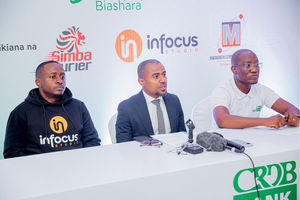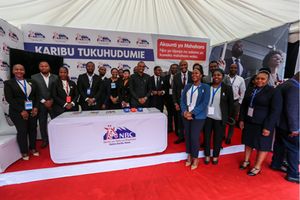Pains and pangs of doing business in Tanzania
Tanzania holds the position no 144 in the 2018-2019 Annual World Bank Doing Business Report.
We have fallen further down the pecking order from No 139 the previous year. These days, the Trojan horse is no longer corruption, even thought it, too, still feature amongst the concerns. The trouble seems to be with high taxation and the way collections is done.
It is almost as if the double digits are so elusive and we are engaged in a relegation dogfight with a bottomless pit.
The bottomless pit against which our Premier League team, the United Republic of Tanzania is engaged in, is none other than our own selves, attitudes, conscience and unashamed huge appetite for singing ourselves till the chicken come home with a fat lie-that everything is well and good.
We sing this song every time anyone ask, I dare say, dares to question why in spite of the onslaught President Magufuli’s no business as usual approach to dealing with the bottlenecks but yet, his retinue of royal court jesters continue to sing-we are doing extremely very well and boy, do they sing loudly.
After the launch of the Tanzania Private Sector Foundation business leaders perception survey last week, the time has come to ask a question that President Magufuli asked of an opinion poll we conducted 4 years ago to mark the 1st 100 Days of his Presidency and the double edged questions were: Do Tanzanians want change and if the answer to this questions is yes, we must then ask, Are Tanzanians ready to change?
As Godfrey Simbeye, Executive Director of TPSF opined, the problems are well known. Problem number one involves the minions that think of themselves as feudal lords-my words, the civil service and number two literally is the common citizen and his attitude. If you combine these two, one arrives at the conclusion that our problem is a people problem.
Recently I have been doing lots of travelling across the country and in the process I have met and held discussions both formal and informal, asking them what seems to be ailing our Doing Business Environment.
The answers as varied as they are across the length and breadth of this expansive country point in the same direction.
We have a people and attitude problem. But the bigger challenge is that as a collective nation we have selected to employ the sheep herd mentality. You see the sheep herd puts their heads together and decide to follow one leader.
In our case our leader is the false impression created that 1) we are doing so well and 2) that anyone saying anything to the contrary is driven by malice/hate because our doing very well is hidden in plain sight everyone should be able to see it. The rest of the sheep herd is closely following the leader.
To put this properly in context, we have not yet agreed and come to terms with, the truth which stares at us right in our faces that-we have a people problem and that because it is the biggest challenge to us harnessing and achieving our economic prosperity potential and agenda, we must have a national conversation to stem this cascade into the bottomless abyss that is the relegation battle.
Our people problem is heavily protected by unwritten social rules of engagement that have replaced common sense.
When civil servants are caught out they plead guilty of the ultimate rule –ignorance, or hide under the laws and rules or even more trendy, play an intricate back passing game that leaves these seeking their services and decision making dizzy. What makes it worse is that we the service seekers have nowhere to turn to.
In the end the evil that is civil service bureaucracy wins. For how long as Mr Simbeye asked and an investor in Lindi asked shall we wait for the wheels of the civil service to feel the grease and turn with ease?
We have no Ombudsman but if we had he/she would simply be overwhelmed as Hans Dietmeyer, the project Manager of Best Dialogue softly says.
My take: The time to hold a national conversation on changing our attitude is now. Attaining National Development goals including on Industrialization and Middle income Status as well as SDG goals to which we are depend on it. Ali Mufuruki , Chairman of Infotech knows so.
Kasera Nick Oyoo is a research and communications consultant with Midas Touché East Africa.




